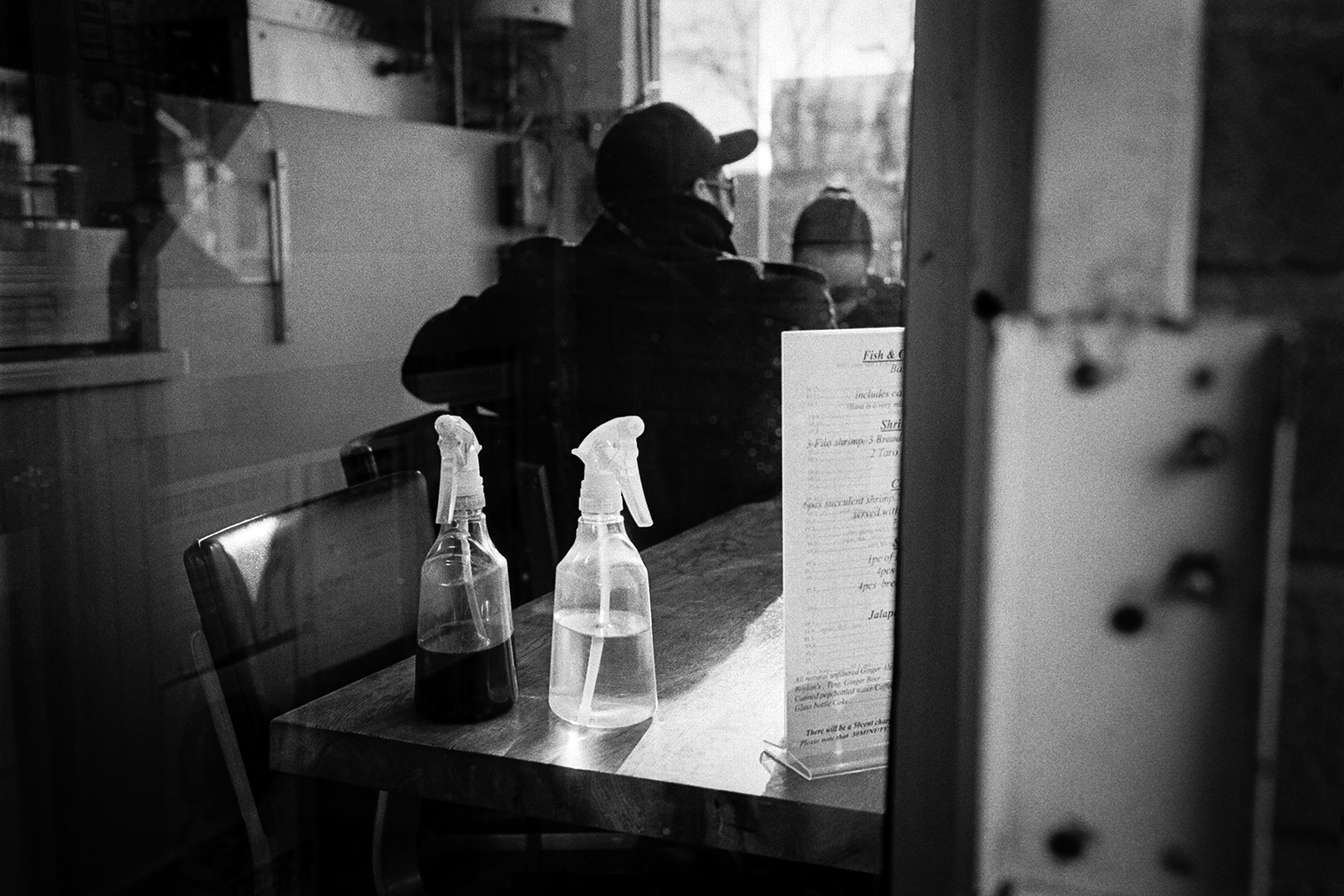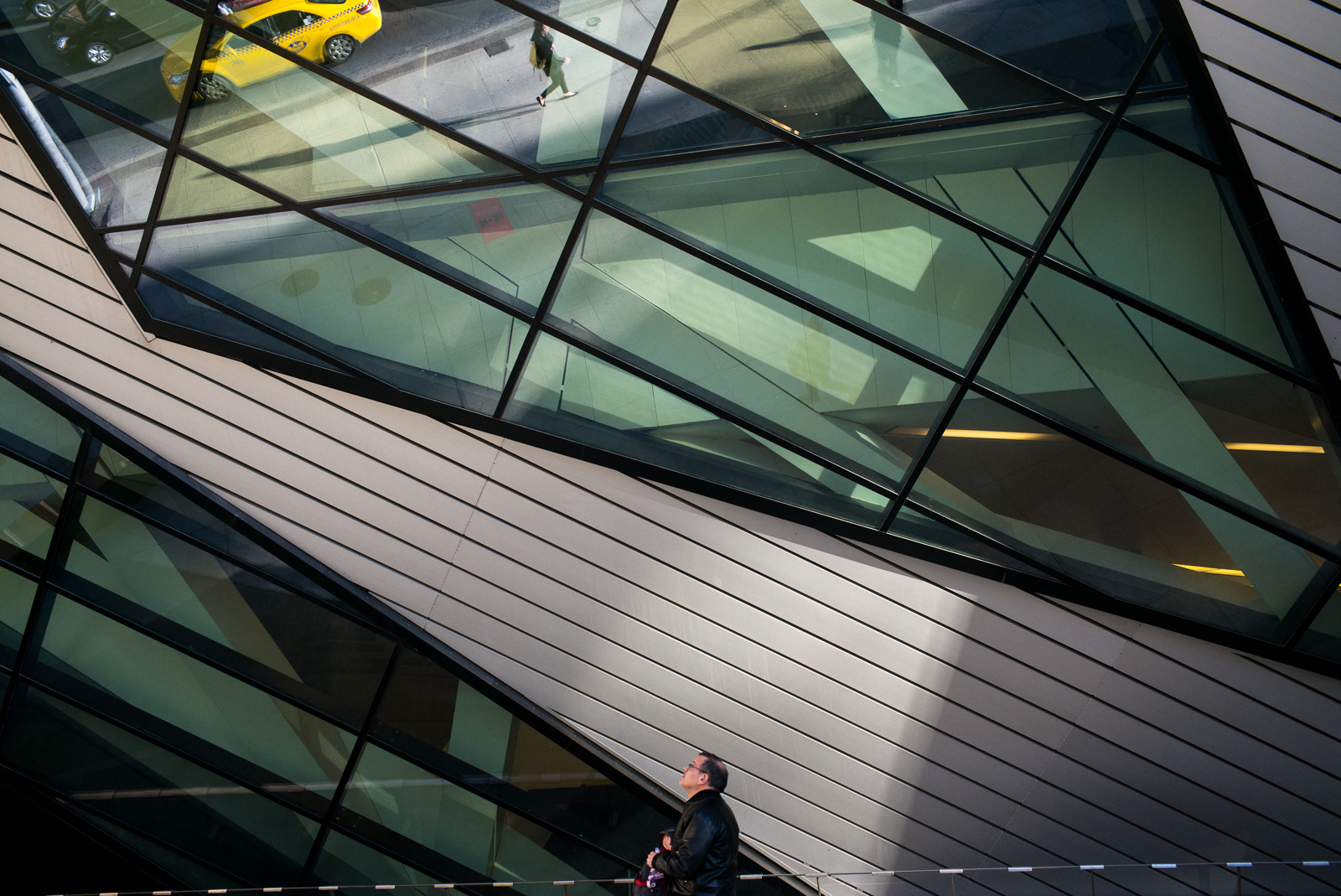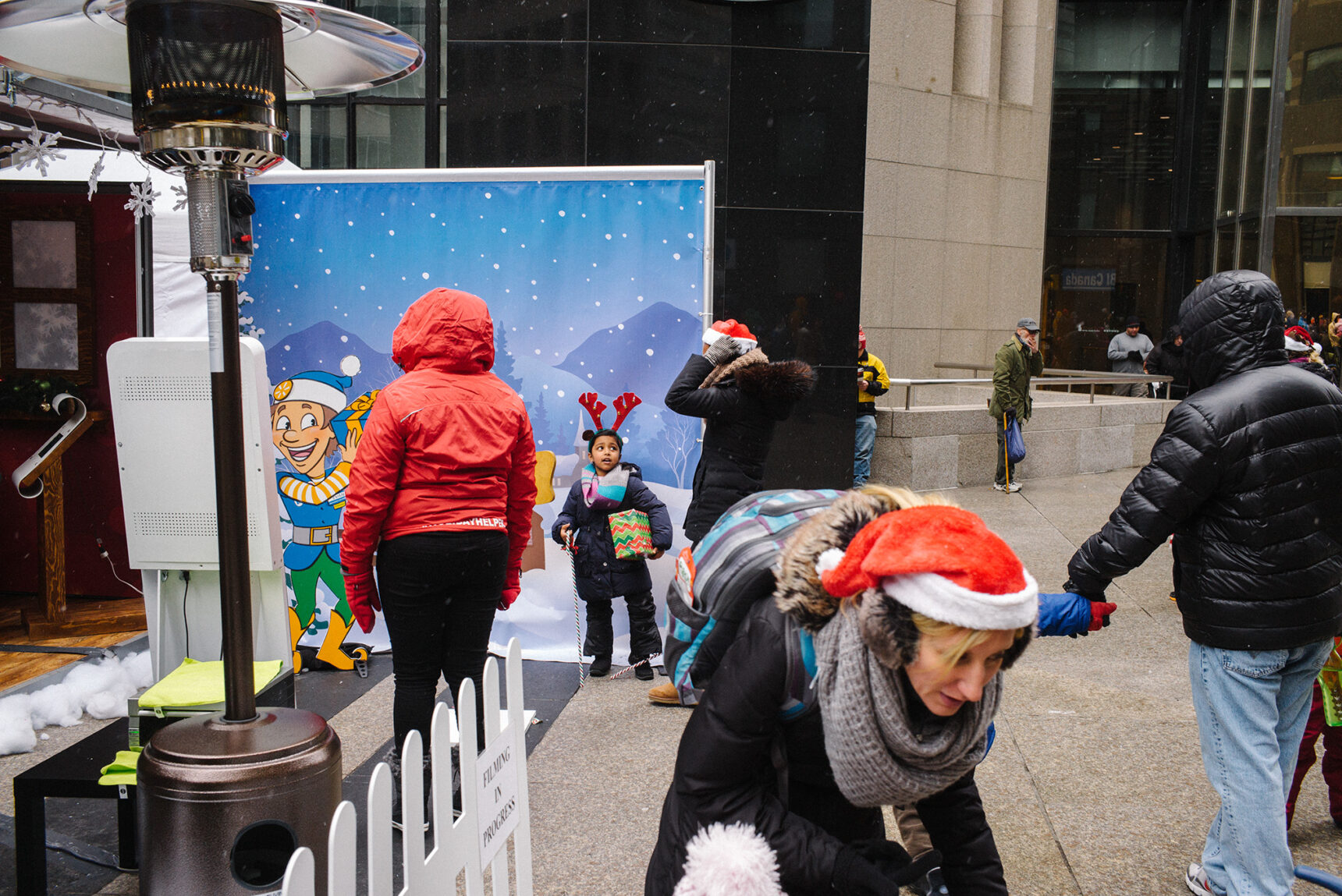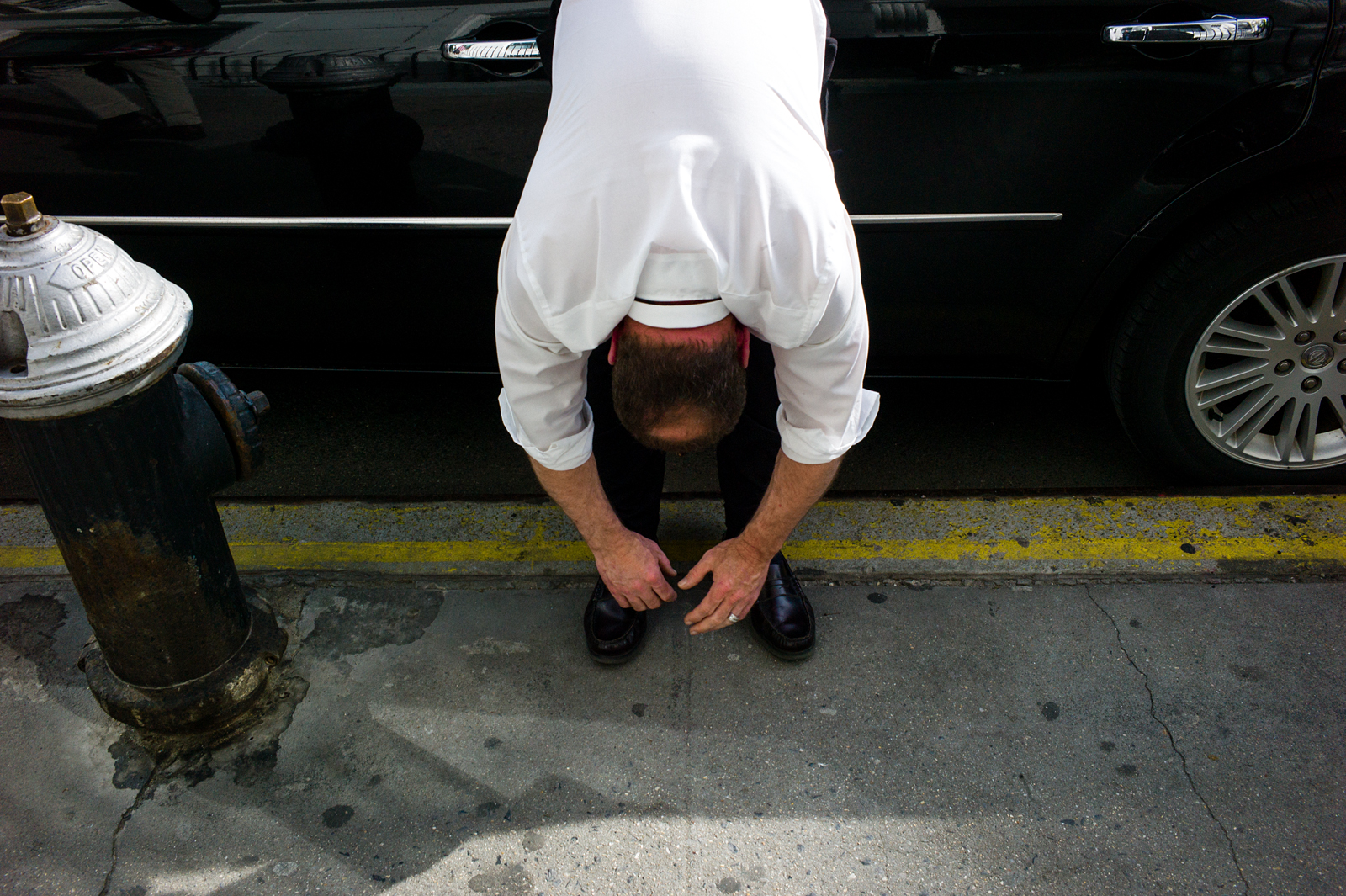I was contacted by Vice Magazine and asked if I’d like to answer some questions on the film vs digital debate. Of course, I said yes! The full interview is now live on vice.com and I have a few more ideas on the subject after the jump!
Interviewed By Vice Magazine
I was contacted Ben Thompson who noticed that film was a growing trend in street photography. He was a fan of StreetShootr and had seen my personal work (which is mostly digital) so he asked me for a quick interview. It was an amazing experience and while Ben had a few questions he wanted to ask, the interview was more of a conversation as we talked about photography and the social forces that influence it. He was super-easy to talk to and I felt comfortable right away.
Check out the full interview here:
StreetShootr Interview On Vice.com.
Film Vs Digital
The film vs digital debate rages on with many photographers taking a stand on one side or the other. For me, it’s about good photography and it really doesn’t matter what substrate the images are created on. The psychology and dynamics of the frame always wins over the medium.
I’ve been shooting for nearly 30 years and I received B.A.A. in photography from Ryerson in 1990. I know all about film and have probably shot close to 10,000 rolls in my life so I can say with some degree of certainty – film looks better to my eye than digital. Side by side, same shot and same light, I can spot the film shot every time. Especially with a film like Tri-X, there’s an organic gradation to the tones and the hilights seem to almost glow. I’ve never seen this duplicated with any filter on digital.

But waxing poetic about the beauty of the tones is a bit too romantic to be practical. The reality is great photographs are not great becuase they look beautiful – although that’s usually one aspect of my enjoyment of an image. They’re great because they represent a remarkable vision of an instant that would otherwise be missed. They’re great because they change the way we think about the world. They’re great in spite of how they were created.
I spent the better part of 2013 shooting nothing but Tri-X. At the time Tri-X was selling for approximately 12.00 CAD per 36 exposure roll. I was able to import it from B&H for approximate $8.00 CAD per roll including foreign exchange and shipping. Budget was a concern so I processed every roll by hand in D-76 which I mixed from powder (just like I did in the 80’s!)
By the time I got the chemistry to temperature, loaded the reels, developed the film and washed it, 2 rolls of film would take approximately an hour to process. Dry the negs and cut and load into sleeves the next morning then flatten them for a day (under my weighty and excellent copy of Magnum Contact Sheets) to get them ready for scanning which took about an hour per roll to complete.
And don’t even talk to me about the 30 minutes per image of removing the dust from each shot – my scanner couldn’t automatically remove dust and scratches from black and white negatives so this also had to be done by hand.
The reality was setting it. Yup, I loved the way film looked. I loved the tones. I loved the archival permanence of negatives that I could go back and reprint / scan whenever I needed. But ultimately I was distributing the work digitally. All of the analog integrity disappeared when that image became digital as the last step.
Considering this, and considering that I was starting StreetShootr I had very little time left for shooting! At the end of the day it’s a matter of an efficient workflow and value for the time you put into film. It was clear to me that if I wanted to keep moving forward I needed a solution that didn’t involve so many hours on the back end.
It could be argued that film is “worth it” and to a certain degree I would agree with that statement. But just about every Magnum photographer is shooting digital now. Alex Webb was forced to start shooting digital when Kodachrome became unavailable and he is no worse of a photographer as a result. In fact, most people would be hard pressed to tell the difference between Alex’s digital and film work. It’s about the image. And that dude’s a wizard no matter what camera he’s using!
Would Bresson Shoot Digital?
Ben asked me if I thought Bresson would shoot digital if he was alive today and I immediately said yes. Every interview I’ve seen with Bresson has indicated to me that he was about the creation of the image and not hung up on the process. Yes, he demanded technical perfection from himself and from his printer but Bresson’s iconic phrase is “the decisive moment” and not “I shot that on film.”
In Bresson’s day, the closest thing to analog vs digital debate would be color vs black and white. He shot some color work but had no use for it at all – but that was a style choice rather than a philosophical boundary. He shot because he needed to make the images. I’m reminded of his quote:
Actually, I’m not all that interested in the subject of photography. Once the picture is in the box, I’m not all that interested in what happens next. Hunters, after all, aren’t cooks. — Henri Cartier Bresson
For Bresson, his job ended at making a good photograph. It seems he could care less about how it was achieved – There were more pictures to create and that was more important.
What would he do if he was alive today? I think that depends. If he started shooting in the time before digital was available then he’d probably still shoot film. Why change from something that is working? But if he was just starting out today I can’t see him choosing a more difficult path for its own sake.
But who am I to say?
Moving Back To Digital

I attended the Alex Webb Workshop in NYC last spring. At that time I only had the M6 and had been shooting on Tri-X for about 8 months and was going to shoot film for the workshop. But Alex talked some sense into me, saying that there was no point in putting myself through that trouble. There was nothing wrong with digital and the workshop was about seeing and learning from images not about process.
I rented a Leica M9 from Lensrentals.com for the week. The digital Leica handled like my M6 and allowed me to work as I normally worked. The pics looked great (you can’t beat the M9 for color) but the workflow had me hooked immediately. Every day I was able to see and learn from my work. With the exception of some minor editing in Lightroom, the task of making photographs ended at their creation.
When I got back to Toronto, I sold my M6 and picked up a Leica M-E which I later traded that for a Leica M 240. Am I following the lemming like behavior of over-consuming digital cameras for their own sake? Was this a case of incurable GAS? Probably not. The moves weren’t motivated by an abstract desire for the latest and greatest. The M-E was a gateway drug and as soon as I started shooting with it I realized I should have made the investment in the M 240 and its superior low light performance. So when I was able I made the switch.
Still using the same 35mm Summicron that was on the M6 and really don’t feel the need for a different lens. It’s about as perfect as I could imagine for shooting on the street.

How do I like the M 240? Well, I’ve got a hands on review coming up so you’ll have to wait and see. But in a nutshell? It’s pretty amazing. There’s a few things about Leica’s flagship rangefinder that make me crazy and lots of things about it that I love. The sensor has its own unique look and is unlike any other digital camera I’ve used.
I’m not a better photographer because I shoot with a big expensive Leica. In fact, far from it. But on those occasions when I AM a better photographer, my images definitely get a boost from the unique look the M 240 sensor provides.
What’s your take on StreetShootr’s Vice interview? What side of the film vs digital debate do you support? Post your ideas in the comments below and keep the conversation going!

